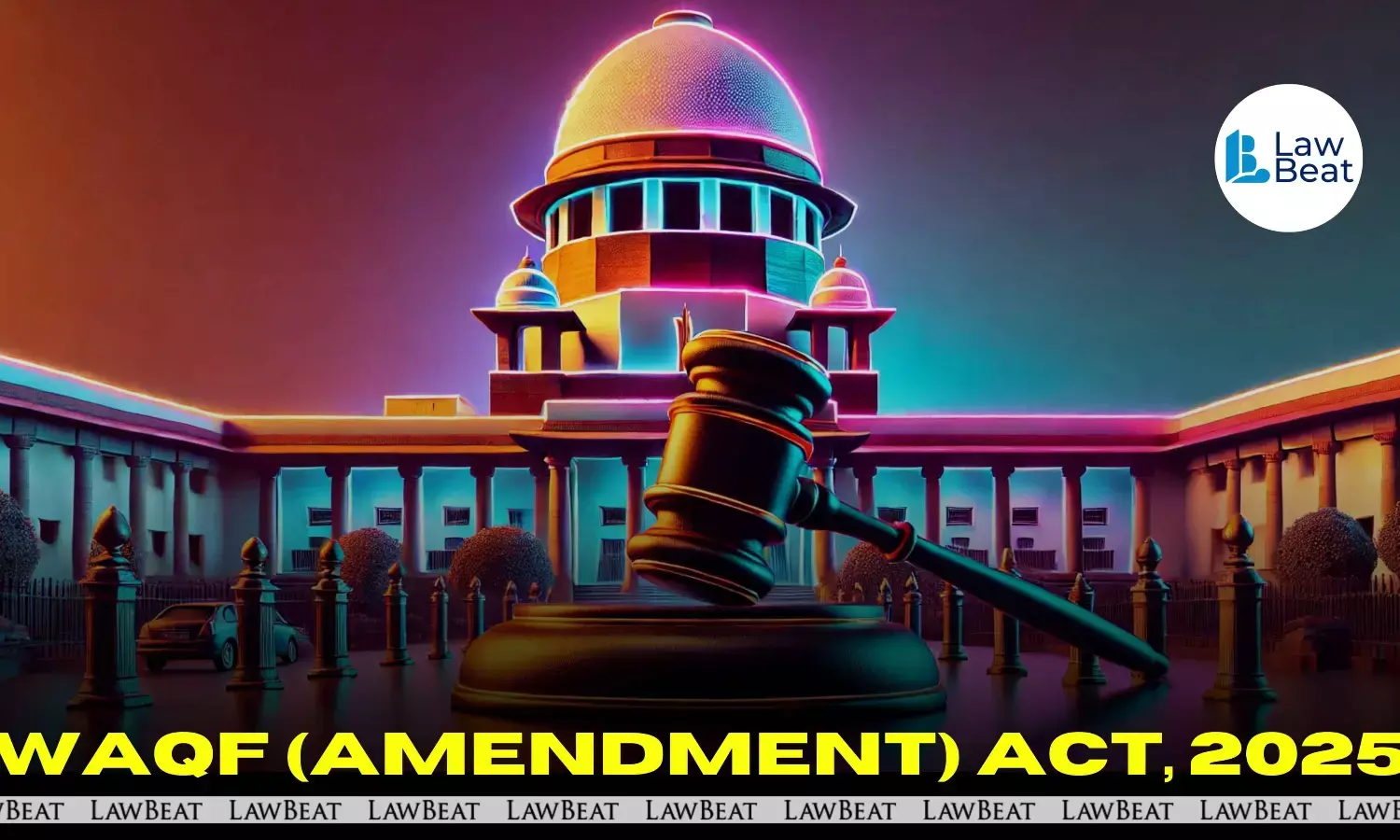APCR Defends Waqf Act Before Supreme Court, Terms Challenge “Misleading, Surreptitious, & Misuse Of Judicial Process"

In a Reply Affidavit filed in a writ petition filed under Article 32 of the Constitution challenging the constitutional validity of various provisions of the Waqf Act, 1995, the Association for the Protection of Civil Rights (APCR) has strongly opposed the plea, terming it “misleading,” “surreptitious,” and a “misuse of judicial process.”
The APCR has contended that the petition lacks locus standi, fails to present any credible evidence or injury, and seeks to propagate unsubstantiated communal narratives regarding the alleged encroachment of Hindu religious lands and favouritism towards the Muslim community.
According to the affidavit filed though AoR Adeel Ahmed, the APCR argues that the Writ Petition is not maintainable under Article 32 as it challenges well-settled legal provisions that have already stood judicial scrutiny. The petition, it asserts, is “devoid of any credible foundation” and “raises ambiguous and generalized allegations” without citing any statistical data, verified reports, or academic evidence.
"That the petition raises ambiguous and generalized allegations without any direct injury or specific legal grievance affecting the petitioners thereby lacking the necessary locus standi and therefore liable to be dismissed in limini," the affidavit reads.
The APCR further submits that the petitioners have approached the Court with unclean hands, presenting a “deliberately manufactured narrative” to undermine the statutory rights and constitutional safeguards available to the Waqf Board and the Muslim community. It has alleged that the petition violates Articles 21, 25, 26, 29, and 30 of the Constitution, infringing on the dignity, autonomy, and cultural identity of minorities.
On the merits, the APCR defended Sections 40 and 108 of the Waqf Act. It pointed out that Section 40 contains built-in safeguards against arbitrary action by the Waqf Board and incorporates the principle of natural justice by requiring notice and inquiry. It also cited the Supreme Court’s 2022 ruling in Maharashtra State Board of Waqf v. Shaikh Yusuf Chawla, where the Court upheld the procedural fairness under Section 40.
Section 108, the affidavit notes, was introduced to rectify historical injustices where waqf properties were mistakenly classified as evacuee properties post-Partition. This provision allows for restitution of those properties and reflects the legislative intent to uphold constitutional values of equity and justice, it said.
Rejecting the petitioner’s argument about legislative incompetence, the APCR invoked Article 323B and Entry 28 of List III of the Constitution, asserting that Parliament has full authority to legislate on charitable and religious endowments. It also referenced the Shariat Act, 1937, to explain the dual structure governing waqf, religious aspects by Islamic law and administrative aspects by secular law.
The APCR refuted the allegation that classification of Shamlat Deh, Shamlat Patti, and Jumla Malkan as waqf properties violates Articles 14, 15, 21, or 300A. It maintained that the classification is based on public and charitable usage of land and adheres to the constitutional test of reasonable classification laid down in State of West Bengal v. Anwar Ali Sarkar (1952).
The affidavit also defended the creation of Waqf Tribunals under Sections 83 and 85, clarifying that such bodies are validly constituted under Article 323B, not 323A, thus rebutting the petitioner’s claim of legislative overreach.
The APCR concluded by stating that India maintains multiple regulatory regimes for religious endowments — including Hindu Religious and Charitable Endowments Acts, the Sikh Gurdwaras Act, and the Christian Endowments Act — and the Waqf Act must be viewed in parity and not in isolation. "The Government of India administers various laws for different religious and charitable trusts including the Hindu Religious and Charitable Endowments Acts (enacted by various states), Sikh Gurdwaras Act, and Christian Charitable Endowments Act. Therefore, the Waqf Act cannot be viewed in isolation or considered discriminatory," it reads.
The matter is expected to be heard on May 5, 2025, at 2PM.
Previously before Court
About the Bill
Case Title: In Re: The Waqf (Amendment) Act, 2025 (1)
